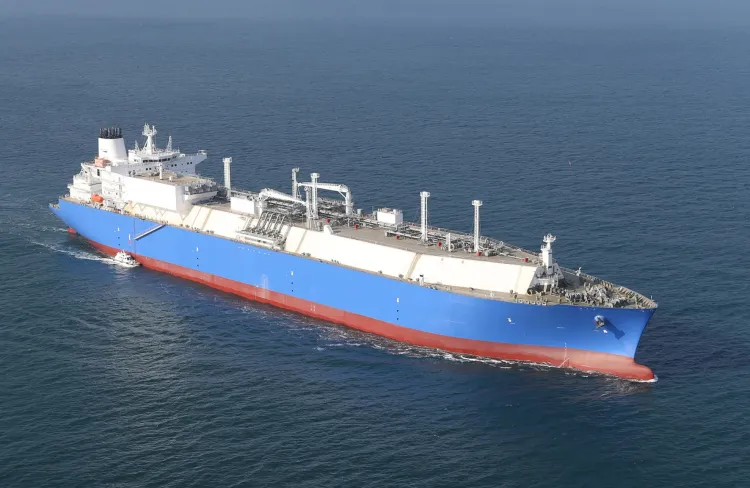Bangladesh Faces LNG Supply Issues as Debts Accumulate

Synopsis
Key Takeaways
- Bangladesh seeks US$ 350 million loan for LNG.
- Foreign suppliers hesitant due to rising debts.
- Domestic gas production is declining.
- Transition to renewable energy is essential.
- Spot market reliance expected to increase in 2025.
Dhaka, March 20 (NationPress) Bangladesh's reliance on the import of Liquefied Natural Gas (LNG) is encountering significant challenges due to a liquidity crisis, compelling the interim government under Muhammad Yunus to pursue a US$ 350 million loan, which is approximately 42.70 billion Bangladeshi taka, for upcoming LNG purchases in the next fiscal year amid ongoing dollar shortages, local media reported on Thursday.
The Energy and Mineral Resources Division along with Bangladesh Oil, Gas, and Mineral Resources Corporation (Petrobangla) disclosed that the loan application process is already underway with technical support from the World Bank, which will serve as a guarantor, as reported by Bangladesh's prominent Bengali daily Prothom Alo, citing sources.
With domestic gas production consistently declining, the interim government is increasingly dependent on LNG imports. Meanwhile, significant debts to foreign firms are accumulating. The American company Chelsea, which is Bangladesh's largest gas producer, is owed more than US $150 million, while overdue payments for LNG have exceeded US$ 200 million. As these debts continue to grow, foreign suppliers are becoming hesitant to deliver LNG shipments. Reports indicate that the current dollar crisis is complicating the settlement of import invoices.
Experts caution that prioritizing LNG imports over local gas exploration jeopardizes Bangladesh's energy sector. They argue that while borrowing may offer temporary relief, it does not resolve the fundamental issues and may lead to increased financial difficulties. They emphasize that instead of depending on loans to fund imports, the government should concentrate on sustainable energy alternatives.
According to Bangladesh's Financial Express, the nation will increasingly depend on the unpredictable spot market in 2025 and will have to import expensive LNG to meet the growing demands from industries, power stations, and other gas-intensive consumers as domestic natural gas production declines.
A senior official from Petrobangla stated that plans are in place to import a total of 115 LNG cargoes—59 from the spot market and 56 from long-term suppliers—marking a 33.72 percent increase compared to the previous year.
A report last November by Market Forces, Waterkeepers Bangladesh, and Dhoritri Rokkhay Amra (DHORA) warned that Bangladesh's proposed LNG power projects and import terminals could potentially cost the economy US$ 50 billion.
The report highlighted that of the US$ 50 billion earmarked for LNG, US$ 36 billion could alternatively fund 62 gigawatts of renewable energy generation, more than double Bangladesh's current electricity capacity, positioning the country as a prospective clean energy leader, according to Bangladesh's Business Standard last year.
It was noted that foreign interests, including major companies from the US and Japan, continue to push for LNG expansion in Bangladesh, posing risks of significant environmental damage.









